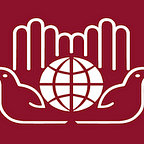Older Persons: A Priority to Protect
New York City — The earthquake and tsunami that hit Japan in 2011 proved to be one of the most devastating natural disasters of the century. For the nation’s men and women aged 65 and over, who made up nearly a quarter of its population, the disaster proved severely catastrophic. Unable to evacuate or secure shelter and under precarious health conditions, older Japanese people faced disproportionate insecurity, as reported by the Guardian.
The aftermath of the Japanese disaster brought to light the vulnerability of ageing populations affected by humanitarian crises. This unsurprising yet deeply neglected reality is one humanitarian responders struggle to address in protracted and emergency crises globally.
Around the world, older persons hold the social fabric of their communities together — especially when crisis strikes. They serve as family guardians and community leaders, advocates and teachers. They are also the first to fall through the cracks of the humanitarian safety net — with limited mobility and frail health as they struggle more than most to reach safety, rebuild their homes, and continue their lives in dignity.
While the number of older persons living in protracted or emergency crises is unknown, the United Nations Department of Economic and Social Affairs has reported that by 2050 the global population of individuals over the age of sixty will more than double to comprise a quarter of the world’s population. In countries susceptible to climate change-induced disasters and conflict, older persons are sure to face greater protection risks, barriers to healthcare, and vulnerability to exploitation and abuse.
Despite this evident risk, the humanitarian infrastructure continually falters in its attempts to provide dignified response to older persons — as reported by the UN Refugee Agency. Immediately after fleeing, they are the first to be split up from their families and lose access to lifesaving medical services. As they begin to start life anew, they face age discrimination when pursuing employment opportunities, health care, and social services.
In a humanitarian sphere with competing interests and rapidly evolving crises, older populations are simply not a top priority. This leaves a huge gap in assistance and creates an environment where older persons struggle to prevail.
Furthermore, in urban areas, where more than 80 percent of the world’s displaced reside, older persons are extremely marginalized and unable to access basic services. Whether the hurricane in San Juan or conflict in Mosul, cities are increasingly becoming hubs for disaster and their older and displaced residents the most affected.
“The elderly are largely invisible in disaster preparedness programs, rescue efforts and reconstruction projects. Too often, they are the forgotten ones whom no one bothers to inform, check on or assist….Older persons are particularly at risk if they live in sub-standard or overcrowded housing, in shantytowns, or in areas with badly designed infrastructure, poor transport systems, or ineffective local leadership,” wrote Ann Pawliczko, PhD IIHA Research Fellow on Ageing in a soon-to-be-published book on urban disasters.
Fortunately, the international community has made a concerted effort to address the plight of older persons affected by crises. In 2002, the United Nations adopted the Madrid International Plan of Action on Ageing which urged humanitarian responses to include older persons in project design and assessment, and to protect older individuals, especially women, from exploitation and abuse.
Fifteen years later, significant strides have been made. Non-governmental organizations like HelpAge International and the International Rescue Committee promote the inclusion and protection of older persons amidst global crises and displacement.The 2030 Agenda and its 17 Sustainable Development Goals call on the international community to leave no older person behind. Nation states have convened to form bodies like the Group of Friends of Older Persons to address their rights and needs on the UN stage.
Humanitarians are also beginning to recognize the wisdom and leadership that older persons contribute to their communities in the aftermath of crises.
“Older people are more likely to be aid givers than receivers. Their assistance to others means that supporting older people — with healthcare or income generation activities, skills training or credit — supports their families and communities. Little attention has yet been paid to how older people can be helped to fulfill such valuable roles in rebuilding communities, and recognition of their special contribution should not lead to devolution of yet more responsibilities without a corresponding increase in support,” reports HelpAge International.
Looking forward, HelpAge and the UN Office for Disaster Risk Reduction are pursuing and promoting fourteen targets that seek to improve humanitarian response to older persons. These include involving older persons in the development of disaster and climate risk assessment, increasing access to early warning signals and information for older persons, and ensuring direct support to older persons including income support and disaster insurance.
These solutions and others will be more deeply explored by representatives of the Permanent Mission of Japan, UNHCR, IRC, and independent experts and Fordham University at an upcoming side event of the 56th Session of the United Nations Commission for Social Development: “Humanitarian Action for Older Persons: Fifteen Years After The Madrid Plan” taking place at the United Nations Secretariat next week.
The event is being convened by the Center for International Health and Cooperation and the Institute for International Humanitarian Affairs at Fordham University in collaboration with the Permanent Mission of Japan to the United Nations, the Group of Friends of Older Persons (GoFOP), the United Nations Department of Economic and Social Affairs (UN DESA) and the Office of the United Nations High Commissioner for Refugees (UNHCR).
Angela Wells, IIHA Communications Officer
